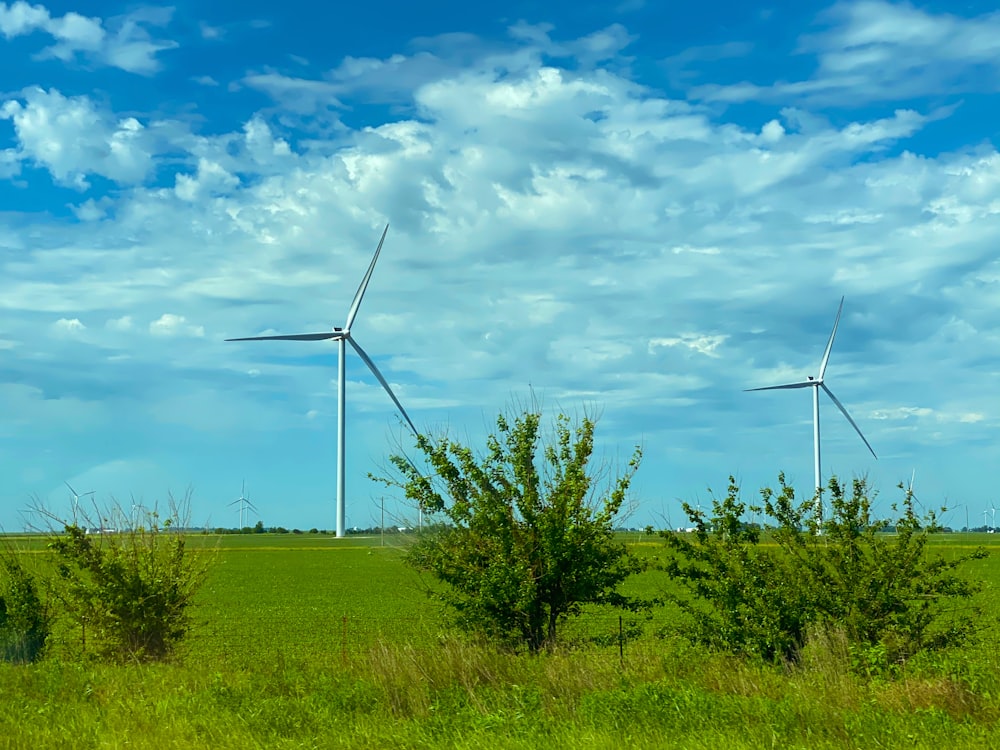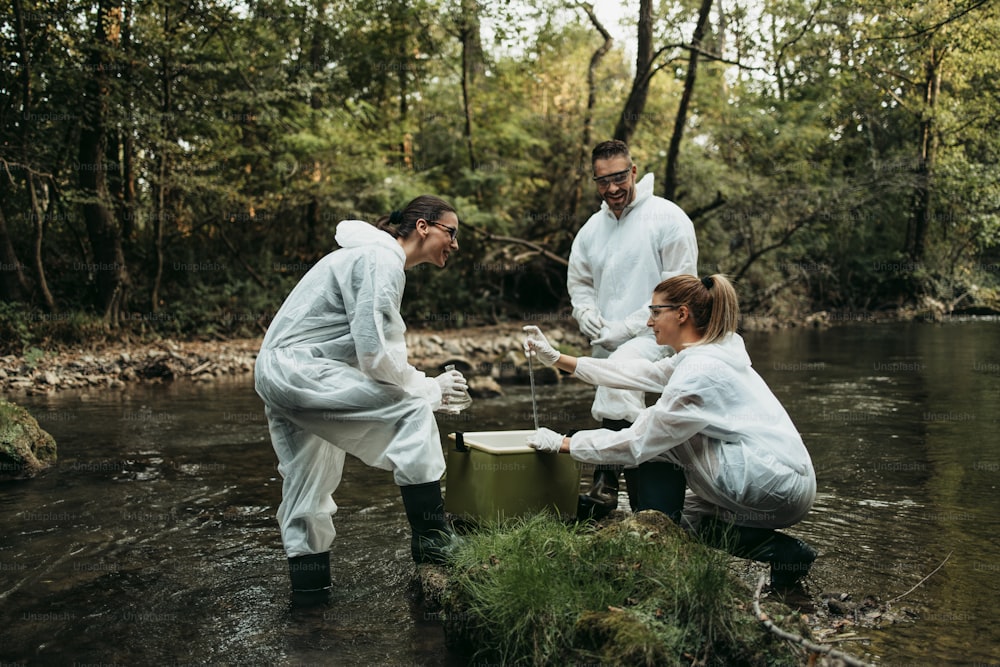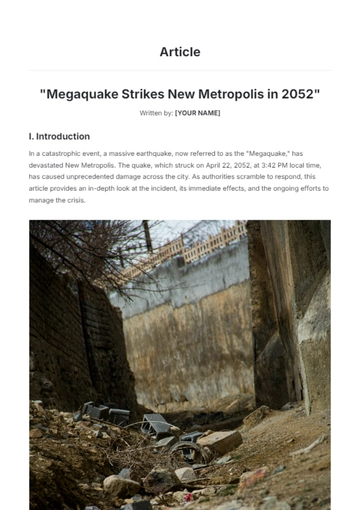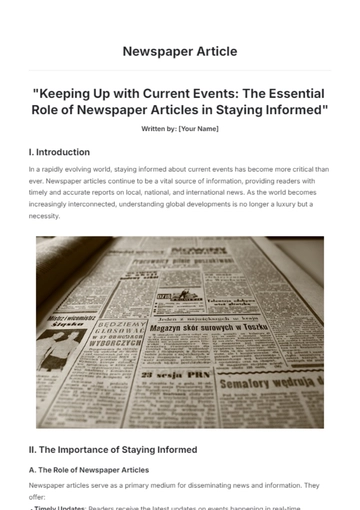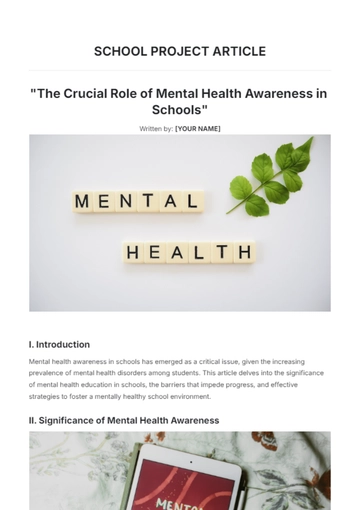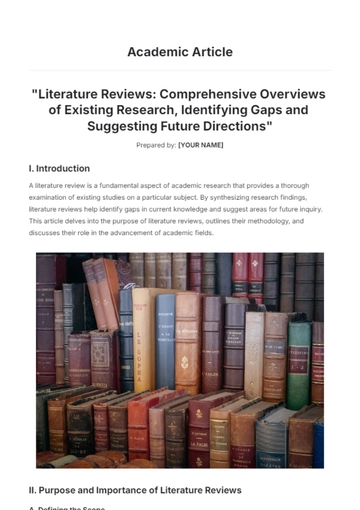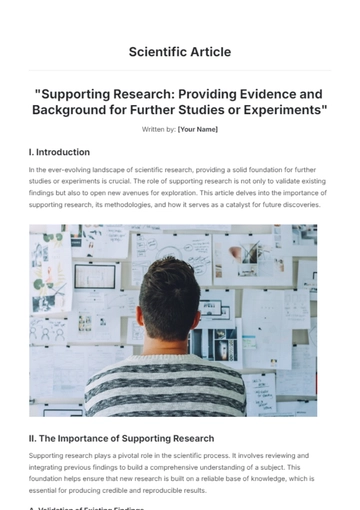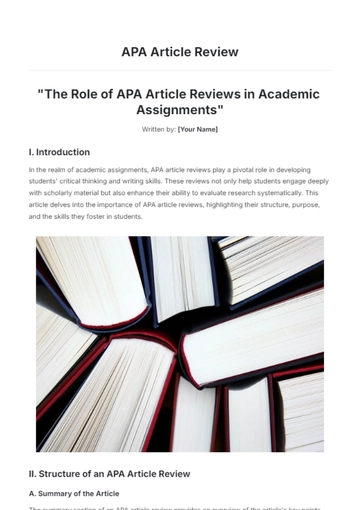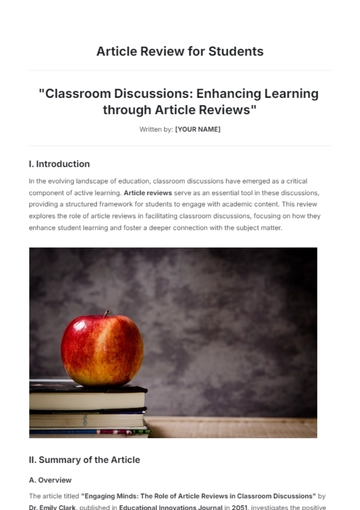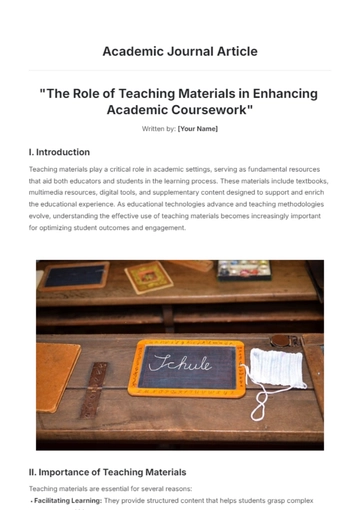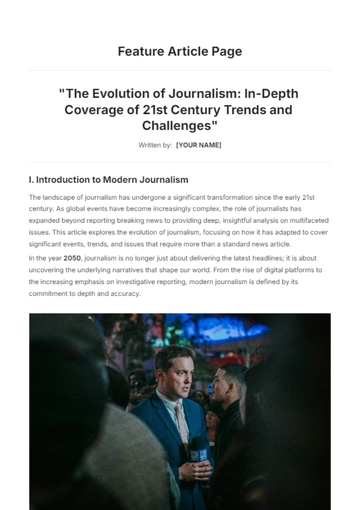Free Environmental Science Article
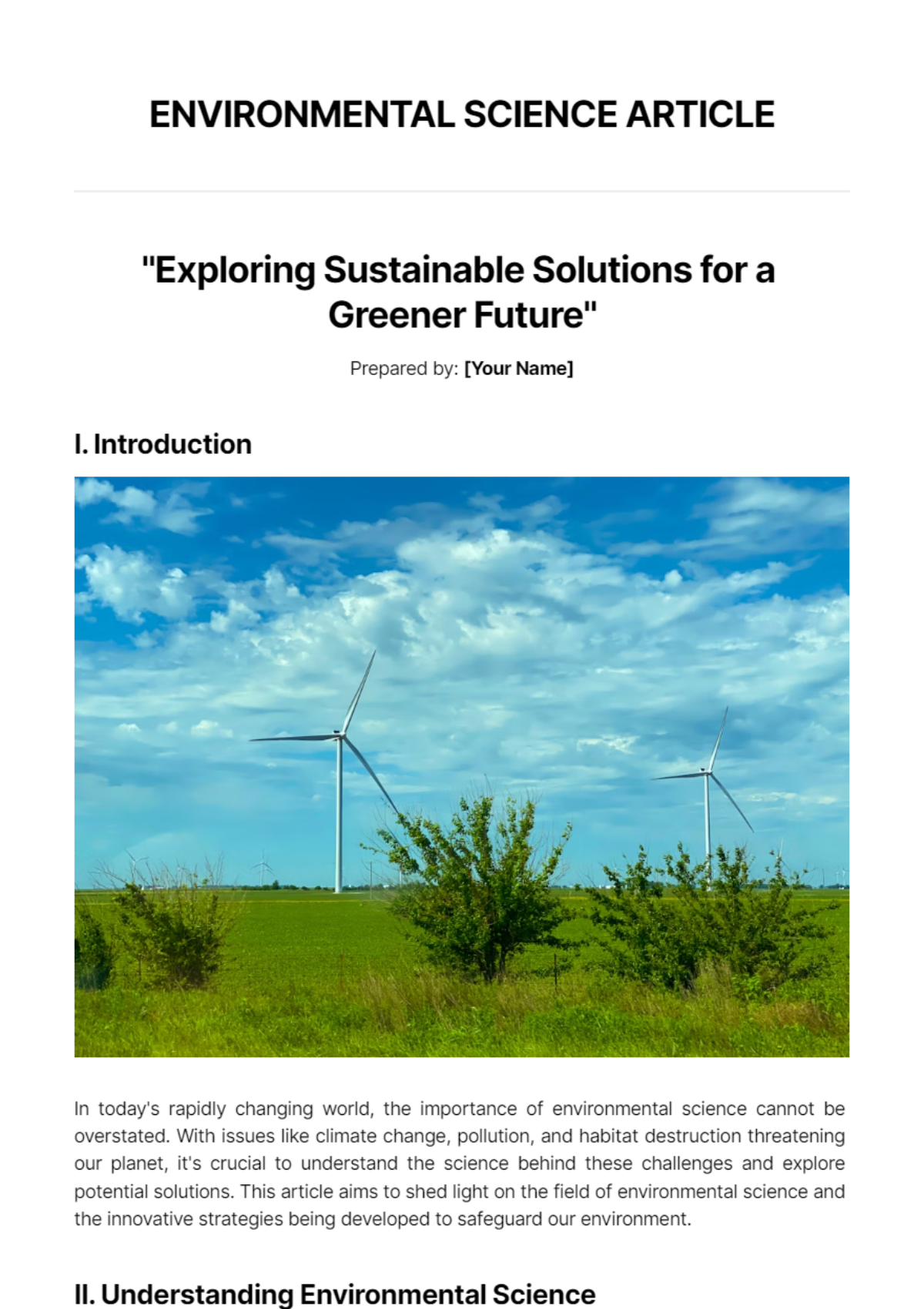
"Exploring Sustainable Solutions for a Greener Future"
Prepared by: [Your Name]
I. Introduction
In today's rapidly changing world, the importance of environmental science cannot be overstated. With issues like climate change, pollution, and habitat destruction threatening our planet, it's crucial to understand the science behind these challenges and explore potential solutions. This article aims to shed light on the field of environmental science and the innovative strategies being developed to safeguard our environment.
II. Understanding Environmental Science
A. Definition and Scope
Environmental science is a diverse field that encompasses the study of the Earth's systems, including the atmosphere, hydrosphere, biosphere, and geosphere, as well as human interactions with these systems.
Its scope extends beyond scientific inquiry to include policy development, environmental management, and advocacy for sustainability.
B. Key Concepts and Principles
Fundamental concepts in environmental science include biodiversity, ecological resilience, sustainability, and the interconnectedness of natural systems.
Principles such as the precautionary principle, ecosystem-based management, and environmental justice guide environmental scientists in their work.
C. Importance of Environmental Awareness
Environmental awareness is essential for fostering a sense of responsibility towards the planet and inspiring action to protect it.
Educating individuals and communities about environmental issues empowers them to make informed decisions and advocate for sustainable practices.
III. Challenges and Solutions
A. Climate Change and Global Warming
Climate change is one of the most pressing environmental challenges of our time, with far-reaching impacts on ecosystems, economies, and human well-being.
Solutions to climate change include reducing greenhouse gas emissions, transitioning to renewable energy sources, and enhancing resilience to climate-related disasters.
B. Biodiversity Conservation
Loss of biodiversity threatens the stability of ecosystems and the services they provide, such as food production, water purification, and climate regulation.
Conservation efforts focus on protecting endangered species, preserving critical habitats, and promoting sustainable land management practices.
C. Pollution Control and Waste Management
Pollution from industrial activities, transportation, agriculture, and urbanization poses significant threats to human health and the environment.
Strategies for pollution control and waste management include pollution prevention, recycling, and the development of cleaner technologies.
IV. Innovations and Best Practices

A. Renewable Energy Technologies
Renewable energy technologies, such as solar, wind, hydroelectric, and geothermal power, offer sustainable alternatives to fossil fuels.
Advances in renewable energy research and development are driving down costs and expanding access to clean energy worldwide.
B. Sustainable Agriculture and Food Systems
Sustainable agriculture practices promote soil health, water conservation, biodiversity, and resilience to climate change.
Initiatives such as organic farming, agroforestry, and permaculture promote sustainable food production while minimizing environmental impact.
C. Green Technologies and Circular Economy
Green technologies and the circular economy aim to minimize resource consumption, waste generation, and environmental degradation.
Innovations such as eco-friendly materials, energy-efficient buildings, and closed-loop systems contribute to a more sustainable future.
V. Conclusion

Environmental science offers valuable insights and tools for addressing the complex challenges facing our planet. By integrating scientific knowledge, technological innovation, and community engagement, we can work towards a more sustainable and resilient future for all. Together, we have the power to protect and preserve the environment for future generations.
For further assistance, collaboration opportunities, or to learn more about environmental science initiatives, feel free to contact [Your Name] at [Your Email] or connect on [Your Company Social Media]. Your contributions and commitment to environmental stewardship are invaluable in our collective efforts towards a greener and healthier planet.
- 100% Customizable, free editor
- Access 1 Million+ Templates, photo’s & graphics
- Download or share as a template
- Click and replace photos, graphics, text, backgrounds
- Resize, crop, AI write & more
- Access advanced editor
Explore the depths of environmental science with our comprehensive Article Template from Template.net. Whether you're delving into climate change, biodiversity, or sustainability, this editable and customizable template empowers you to convey your findings effectively. With our Ai Editor Tool, tailor the template to your research, data, and insights effortlessly. Start crafting impactful environmental science articles today.
